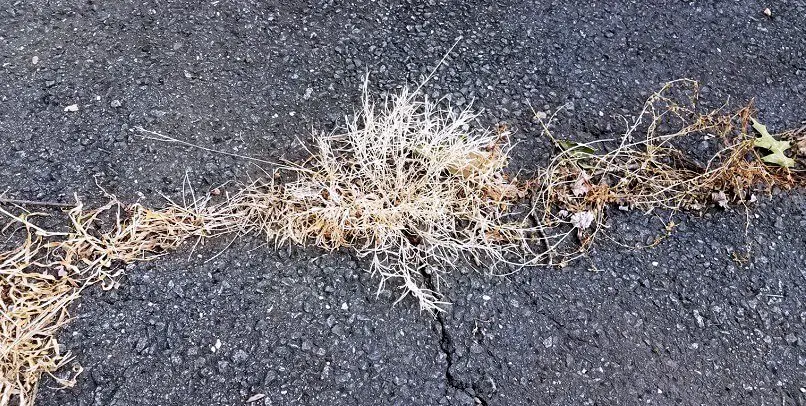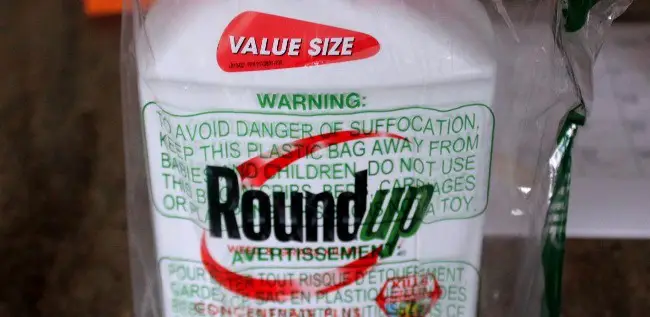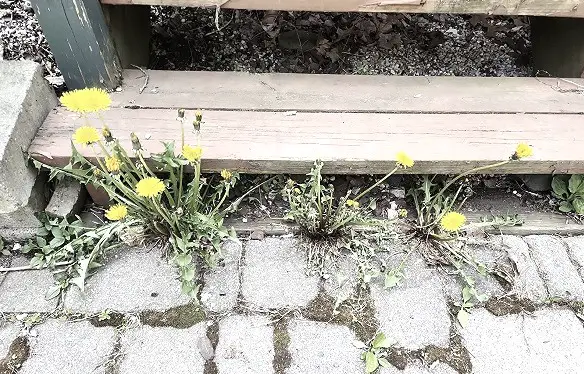Killzall Vs Roundup Weed Killer

Both Killzall and Roundup are well-known herbicides, popular for their post-emergent and non-selective properties, making them highly effective against a broad range of weeds and grasses.
Despite having similar use cases, these products exhibit differences in chemical composition, effectiveness, and usage instructions, which are crucial for making an informed choice.
Killzall Vs Roundup Table
We will review the differences between these two options to determine which would work better for you.
Killzall | Roundup |
Active Ingredients 41% glyphosate | Active Ingredients 18% glyphosate |
One 32-ounce bottle can treat up to 6,400 square feet | Shows visible results within 12 hours thanks to FastAct Technology. |
Super Concentrate Killzall Can Be Used For Spot Treatment | Kills Weeds To The Root So They Wont Come Back |
Mixing Ratio Is 2.5 Oz. Per Gallon Of Water | Mixing Ratio Is To Add 2 1/2 Oz. Per 1 Gallon Of Water |
Double Surfactant Formulation That Dries On Plants Fast To Start Working Quickly | It Works By Targeting An Enzyme That Is Essential To Plant Growth |
Safe For Pets And Children After It Dried | People And Pets May Enter Treated Area After Spray Has Dried |
Non Selective Herbicide With A Multiple-use Formulation Can kills any Weeds and Grass | The Formula Is Ideal For Use In And Around Vegetable Gardens, Flower Beds, Tree Rings, As Well As On Cracks In Driveways |
It Can Kills Annual Ryegrass, Annual Bluegrass, Clover, Common Plantain, Crabgrass, False Dandelion, Yellow Nutgrass and many other | It guarantees to kill the toughest weeds and grasses down to the root. |
Roundup Concentrate Plus
Roundup Concentrate Plus Weed and Grass Killer is a herbicide manufactured by the company Monsanto. It comes in a 36.8-ounce container with an Easy Measure Cap for convenient mixing and measuring.
- Roundup Concentrates offer an economical and effective solution for handling large weed control areas.
- It’s not suitable for use around existing edible plants.
- It guarantees to kill the toughest weeds and grasses down to the root. If unsatisfied, the company offers to replace the product or refund the purchase price upon presenting original proof of purchase.
- The use of a Roundup-branded tank sprayer is recommended for application.
- People and pets can safely enter treated areas after the spray has dried.
- Visible results can be as fast as 9 hours with FastAct Technology.

Killzall Weed and Grass Killer
Killzall Weed and Grass Killer is a herbicide commonly used to control unwanted vegetation. It is designed to kill various weeds and grasses, including broadleaf weeds, annual and perennial grasses, and woody brush. Killzall Weed and Grass Killer contain glyphosate, a non-selective herbicide that can kill many plants.
- Killzall is a liquid weed killer with a double-surfactant formulation designed to dry quickly on the plant and begin working quickly.
- One 32-ounce bottle can treat up to 6,400 square feet.
- It can also be used for brush or vine control on green and actively growing plants.
- The formulation contains 41% glyphosate, a widely used systemic herbicide that works by killing plants down to the root.
- It’s also labeled for use in lawn renovation, brush and vine control, and stump treatment.
Concentration Details
Both Killzall and Roundup are post-emergent, non-selective herbicides that are potent against various weeds and grasses. They are available in liquid concentrates that must be mixed with water before application.
Killzall has a higher concentration of the active ingredient, glyphosate, at 41%, while Roundup contains 18% glyphosate and an additional 0.73% diquat, another effective herbicidal compound.

Rain-fast Property
A vital characteristic of these herbicides is that they are rain-fast, meaning they retain their effectiveness even after rainfall.
This property distinguishes them as highly reliable in unpredictable weather conditions. Killzall becomes rain-fast in 2 hours, while Roundup achieves this feat in a shorter span of 30 minutes.
Versatility in Use
Both products are engineered for use in various locations, including around trees and shrubs, on patios, driveways, walkways, and fences, and even in gravel areas and mulch beds.
Their effectiveness extends to larger jobs like lawn replacements or garden plot preparation, further showcasing their versatility.
Efficacy & Action Speed
While both products guarantee to kill weeds and grasses down to the root, their speed of action is a noteworthy difference. Roundup includes FastAct Technology, which ensures visible results in as fast as 9-12 hours.
In contrast, Killzall does not specify a timeframe for visible results. Despite this, both products ensure the complete elimination of unwanted vegetation.
Mixing Ratio
The dosage requirements for each product differ. Killzall recommends using 2.5 to 5 tablespoons per gallon of water, whereas Roundup suggests a slightly higher volume with 6 fluid ounces per gallon of water.
This indicates that although Killzall has a higher concentration of glyphosate, more Roundup is needed per gallon of water to achieve the desired results.
Formulation
Killzall boasts a double-surfactant formulation. This feature enhances the product’s ability to stick to and penetrate plants more effectively, resulting in thorough weed elimination.
On the other hand, Roundup promises to kill the toughest weeds and grasses to the root, reinforcing its reputation as a highly effective herbicide.
Our Observation
Both Killzall and Roundup exhibit robust characteristics as non-selective, post-emergent herbicides. While Killzall has a higher glyphosate concentration, Roundup compensates with an additional compound, diquat, and FastAct Technology that offers visible results in just 9-12 hours.
Roundup also boasts a quicker rain-fast property, effective just 30 minutes after application, as compared to Killzall’s 2 hours. Yet, Killzall’s double-surfactant formulation promises more effective plant penetration for weed elimination. Dosage recommendations suggest more Roundup is needed per gallon of water, perhaps due to its lower glyphosate concentration.
Although both products are versatile and highly effective, Roundup’s faster action speed and rain-fast time offer an edge, particularly in areas with unpredictable weather conditions and for those seeking quick results.
Therefore, Roundup might be considered the better option, balancing efficiency and speedy action. However, the choice should depend on the specific needs and conditions of the user.
Related Article

James E. Butkovich, Pest control maven with a knack for eco-friendly & Chemical solutions. Blogger with a mission to make homes pest-free, one post at a time.

